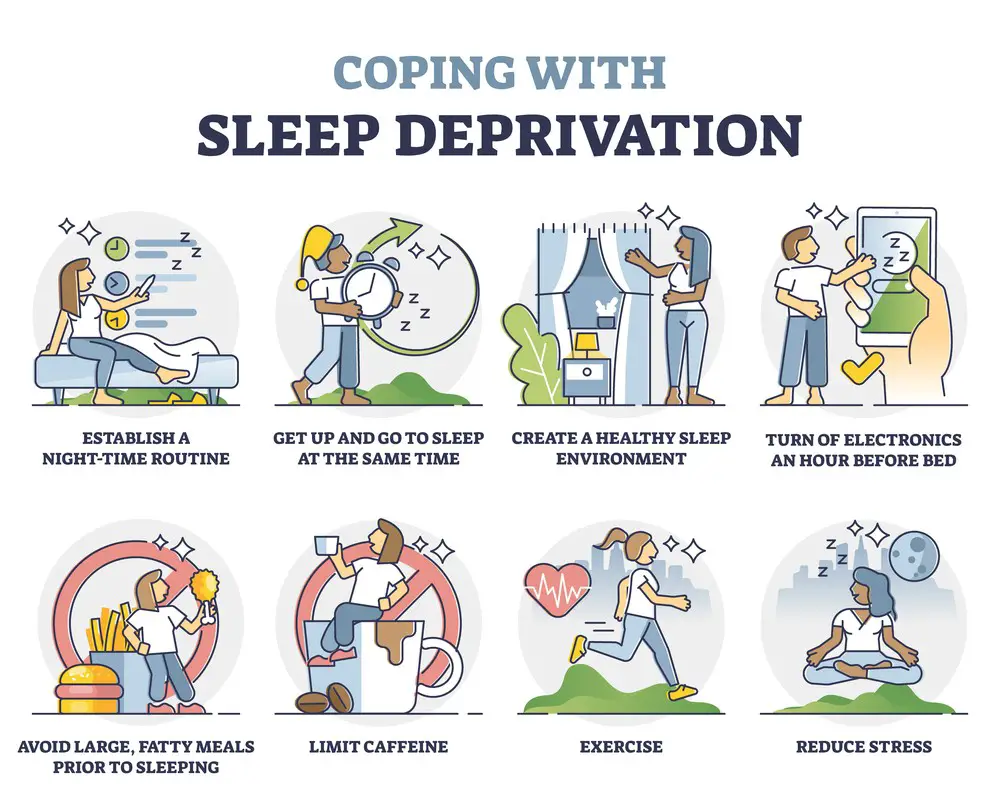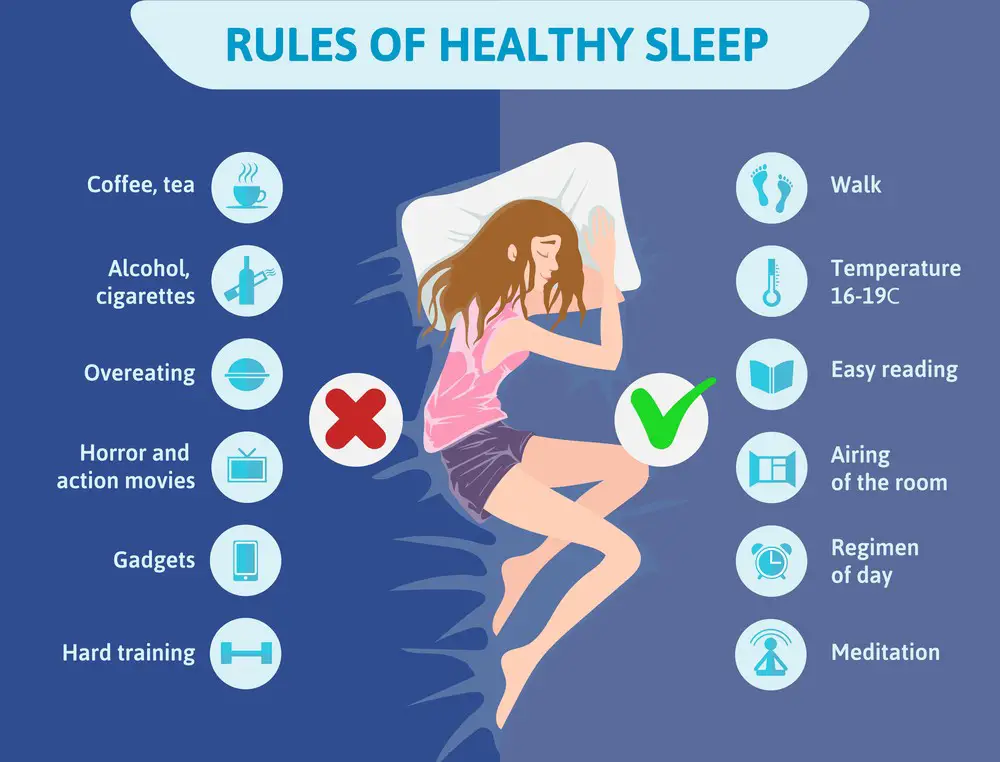As a BetterHelp affiliate, we receive compensation from BetterHelp if you purchase products or services through the links provided
In the hustle and bustle of modern life, a good night’s sleep can often feel elusive. The demands of work, family, and social obligations can leave us tossing and turning, staring at the ceiling as the clock ticks away. But fear not, as there are practical steps you can take to enhance the quality of your sleep. This comprehensive guide will delve into effective strategies beyond the usual advice of counting sheep. From creating a sleep-friendly environment to establishing mindful bedtime routines, let’s explore the top ways to improve the quality of your sleep.
 Establish a Consistent Sleep Schedule
Establish a Consistent Sleep Schedule
The human body craves routine, and your sleep-wake cycle is no exception. Going to bed and waking up simultaneously every day, even on weekends, helps regulate your body’s internal clock. This consistency reinforces your natural circadian rhythm, making it easier to fall asleep and wake up feeling refreshed. By aligning your sleep schedule with your body’s needs, you promote a sense of balance that can significantly improve the quality of your sleep over time.
Limit Screen Time Before Bed
In our technology-driven world, it’s common to unwind by scrolling through social media or watching TV. However, the blue light emitted by screens can interfere with melatonin production, making it harder for you to fall asleep. Establish a screen curfew at least an hour before bedtime, allowing your brain to shift into sleep mode naturally. Instead, engage in calming activities that don’t involve screens, setting the stage for a more tranquil and restful night. To further reduce the harmful effects of blue light, consider investing in blue light-blocking glasses while working on screens. As seen at blockbluelight.com.au, these glasses filter out harmful blue light, promoting better eye health. So, even if you have to work late on your laptop, you can protect yourself from the adverse effects of blue light and still enjoy restful sleep.
 Create a Relaxing Bedtime Routine
Create a Relaxing Bedtime Routine
Transitioning from a busy day to a restful state can be challenging. Establishing a calming bedtime routine signals to your body that it’s time to wind down. Consider activities like reading a book, practicing gentle stretching, or indulging in a warm bath. These rituals remind your brain that it’s time to shift gears, promoting relaxation and easing the transition into a peaceful night’s sleep.
Optimize Your Sleep Environment
Your bedroom plays a crucial role in the quality of your sleep. Make it a haven for relaxation by keeping it cool, dark, and quiet. Invest in blackout curtains, comfortable bedding, and a supportive mattress. Eliminate electronic devices that emit blue light, as they can disrupt your body’s production of melatonin, a hormone that regulates sleep. Cultivating a comfortable and soothing sleep environment can create the perfect conditions for a deep and rejuvenating rest.
Watch Your Diet
What you eat and drink can significantly impact your sleep quality. Avoid consuming caffeine and nicotine close to bedtime, as these stimulants can interfere with your ability to fall asleep. Additionally, be mindful of large meals before bedtime, as digestion can disrupt sleep. Consider incorporating sleep-inducing foods into your evening routine, such as chamomile tea, warm milk, or a small snack rich in tryptophan, an amino acid that promotes relaxation and drowsiness.
Stay Active During the Day
Regular physical activity not only benefits your overall health but can also contribute to better sleep. Engage in moderate exercise, such as brisk walking or cycling, for at least 30 minutes most days of the week. However, avoid vigorous exercise too close to bedtime, as it may have the opposite effect and energize you rather than promote relaxation. Finding the right balance of physical activity throughout the day can enhance your sleep quality and overall well-being. If your schedule allows, consider taking a short walk during your lunch break or practicing yoga in the evening to wind down.
Manage Stress and Anxiety
Persistent stress and anxiety can be detrimental to sleep quality. Incorporate stress-reducing practices into your daily routine, such as meditation, deep breathing exercises, or mindfulness. Establishing a pre-sleep relaxation ritual can help ease a busy mind and create a sense of calm. By addressing the root causes of stress and anxiety, you empower yourself to navigate life’s challenges clearly, ultimately improving your ability to unwind and enjoy restorative sleep.
Quality sleep is a cornerstone of a healthy and fulfilling life. Incorporating these strategies into your daily routine can create a conducive environment for restorative sleep. From establishing a consistent sleep schedule to cultivating a calming bedtime routine, each step contributes to a holistic approach to prioritizing your well-being. Remember, each individual’s journey to better sleep is unique, so be patient and experiment with what works best for you. Sweet dreams await those who embrace these habits and prioritize sleep.
- 7 Ideas to Help You Relax and Unwind on a Family Vacation - April 27, 2025
- How Having Cybersecurity Protection Helps You Relax - April 25, 2025
- 8 Reasons Why Spending Time Outside Calms You Down - April 25, 2025
This site contains affiliate links to products. We will receive a commission for purchases made through these links.


 Establish a Consistent Sleep Schedule
Establish a Consistent Sleep Schedule Create a Relaxing Bedtime Routine
Create a Relaxing Bedtime Routine
